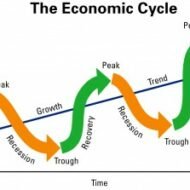Posted by Managementguru in Business Management, Human Resource, Organisational behaviour, Principles of Management, Project Management, Training & Development
on Mar 19th, 2014 | 0 comments

Call Centre Challenges The emergence of numerous “call centers” in developing countries like India and China, has posed some serious threats to the employees of these concerns. The concept of call center is a new find of the modern era, where they handle volumes of business process outsourcing for the developed countries. What are the various operations carried on in a call center? They handle inbound and outbound customer care services, telemarketing services, e-mail management services, pay roll accounting, help desk and many more back end activities. Benefits of Outsourcing: It proves to be a win-win situation for both the parties; the outsourcing company benefits from cheap labor, and the company that does the job earns good pay in the form of foreign exchange. But one has to understand the nuances of the call center operations; how it can be really worked out to one’s benefit? If you have a direct link with the outsourcing company, there is no need for you to share the profit. If the job is sublet to you, then your share gets reduced down the line. And also, the pay comes in a cycle of 45 days or so. So, it becomes mandatory that you should have the wherewithal to rotate your own funds for that 45 day period time, to fulfill establishment costs, power costs, salary and other miscellaneous expenses. What is the Pressure Situation? Let’s not get into the details of how to establish a call center and the necessary infrastructure to start one. The business has created a pressure situation, as it calls for erratic work hours and disturbed eating and sleep patterns. Definitely, it affects the youth, who form the major population of call centers, psychologically and socially as well. The erratic work schedules, (they work round the clock in shifts) the intense work pressure to achieve targets eventually leads to a pressure cooker like stress situation. Their altered sleep cycle is dangerous to both their physical and mental health. It is an evident fact that more number of persons working in this industry has started complaining about their physical and mental problems like Anxiety Depression Relationship-related problems Headaches Disturbed appetite Hearing loss Changes in thyroid and adrenaline levels Loss of weight Obesity and Smoking to reduce immense tension is also witnessed. The call center business has been a flourishing business in developing nations, though recently we tend to see a lull in the market, owing to the government regulations of the developed nations. Even the economy of developed countries, has taken a huge plunge owing to the recent economic recession. Naturally, when their financial markets have become unstable, they would not want to outsource to low-cost developing countries. The BPO’s or KPO’s (business process outsourcing and knowledge process outsourcing), as they are called should not become a fad, instead, developing nations can also concentrate on indigenous business clients, that are in need of their services. Note: India is the leading country for offshore outsourcing. The offshore outsourcing industry started in India and it has been able to grow the IT and BPO export sector to $47 billion and capture more than half the offshore outsourcing...

Posted by Managementguru in Change management, Economics, International Business, Principles of Management
on Mar 15th, 2014 | 0 comments

Factors That Influence Global Economy The industrial and business environment of developing countries has been subjected to a sea of changes owing to the economic reforms and policies in the light of globalization, privatization and liberalization. A long term economic vision is necessary for these countries to establish themselves in the global market which facilitates the process of becoming self sufficient in due course of time. Let me present you with a synopsis of how this change can happen and how countries are adapting themselves in lieu of the global economic boom. Multi Brand Retail Markets: Many multinational companies have acquired and are trying to acquire a major part of equity in multibrand retail markets of the host country and sometimes they opt for Joint ventures to factorize the economy of scale which also proves to be a win-win situation for both the parties. Developing countries have altered their economic views on foreign direct investment and are very liberal in their attitude in providing with the necessary licenses. The entry of multinational companies and their potential investment has even altered core sectors like power, oil and telecommunications. Moreover, the benefit of cheap labor, economic subsidies for the start of operations in economically backward regions lures foreign investors. Rush of Entrepreneurship: There is a rush of entrepreneurship in the developing countries, in the form of setting up of small scale industries, cottage industries for which liberal subsidies are provided by the governments to encourage the act of entrepreneurialism. Also people want to go for diversification, mergers and acquisitions in the wake of global competition. Capital Markets’ Role: Capital markets have gained new buoyancy. The rapid growth of stock market and its influence over the international economic scenario have made foreign brokers to keenly follow the market changes for potential investment. The one striking feature of the economy of developing countries is that, it is a self made economy and withstands the pressures of the business cycle, such as recession and inflation, unlike foreign markets that have failed to stabilize their markets owing to what is called sub prime lending, a plan that has failed to achieve the desired economic growth. Instead of making the capital market alive with fresh infusions of funds, it has left many banks and financial institutions bankrupt. Banking Sector: Banking sector has scaled to greater heights and has come under a competitive environment. Deregulation of interest rates to attract potential investors, new technology, products and aggressive marketing usher in new competition; disinvestment of government equity in nationalized banks have made banks to operate as commercial institutions and their services get marketed as branded consumer products. Financial services have emerged as a new business and funding options are aplenty increasing the chances of raising capital. This has evolved as a separate and major source of business fetching revenue to the service providers. Private Sector: Private sector is gaining importance in countries like India, where they have entered all the core industries like oil, mining, telecommunications, road building, railways, ports, civil aviation etc. This serves as a revenue source for the government and this kind of economic restructuring has brought a wave of enthusiasm amongst the potential investors. Imports have become an entrepreneurial activity and are out of the government domain and this has been facilitated by relaxation of licensing hassles. These are some of the recent trends in the developing countries that have captured the interest of multinational...

Posted by Managementguru in Financial Management
on Feb 25th, 2014 | 0 comments

Venture Capital and Traditional Financing- Comparison of Advantage Venture capital is a new form of financing that has come as a boon for young entrepreneurs and it plays a strategic role in financing small scale enterprises and high technology and risky ventures. In all the developed and developing nations it has made its mark by providing equity capital, so, they are more like equity partners rather than financiers and they are benefited through capital gains. Don Valentine is known as "the grandfather of Silicon Valley Venture Capital". He was one of the original investors in Apple, Atari, LSI Logic, Cisco Systems, Oracle, and Electronic Arts back in the 1970s. So he has a top notch track record. Here are some of his quotes:— Lion (@Lion_Investor1) July 27, 2021 Venture capitalists evaluate the risk using the following factors: Management TeamCompetitive AdvantageMarket PotentialBarriers to entryExit Strategy Banks’ Stand Towards First Generation Entrepreneurs Young and growing businesses need capital at the right time, not only to float their company in the market but also to survive in the long run. When financial institutions like banks and other private financial organizations hesitate to take the risk of early stage financing, since the credibility of the budding firm is not established, venture capital firms comes into the foray to fund the project in the form of equity which can be termed as “high risk capital”. Venture Capitalist is like an Equity Partner Although there is a misconception that the interest of venture capital firms is mainly driven by cutting edge technology in the industry, it is not always the case with all venture capital firms. A venture capitalist associates high risk with huge profits; of course after thoroughly analyzing the prospects and consequences and the viability of the project. The venture capitalist becomes a partner with the entrepreneur in his business. True venture capital financing need not confine itself to high end technology products. Any risky idea with great potential can be financed and venture capital is an all powerful mechanism to promote and institutionalize entrepreneurship. Focus on Growth Mainly venture capital focuses on growth. A venture capitalist is very much interested to see a small business growing into a larger one. He assists in setting up the business, funding it and travels all along to see the firm grow. If it is potential equity participation, the venture capitalist can come out of the partnership once the company becomes profitable and take back his money by selling the shares or convertible securities. If the firm opts for a long term investment from the venture capital finance, the financier has to develop an investment attitude for a long term, say five or ten years to allow the company to make large profits. Active Participant in the Operations of the Firm Another form of financing is that the venture capitalist has his hands on management by which he becomes an active participant in the operations of the firm and his thinking is streamlined as to how to multiply and make quick money which is a win-win situation for both sides. Not only finance, the venture capitalist also contributes to marketing, technology upgradation and management skills to the benefit of the new firm. Venture Capitalist- Banker, stock market investor and an entrepreneur in one. The venture capitalist’s management approach is significantly different from that of a banker whose prime concern is collaterals and securities in the form of assets. He keeps his hands off the management and plays safe. The venture capitalist can also not behave like a stock market investor who invests money without having thorough knowledge about the company’s business and management. He combines the qualities...






